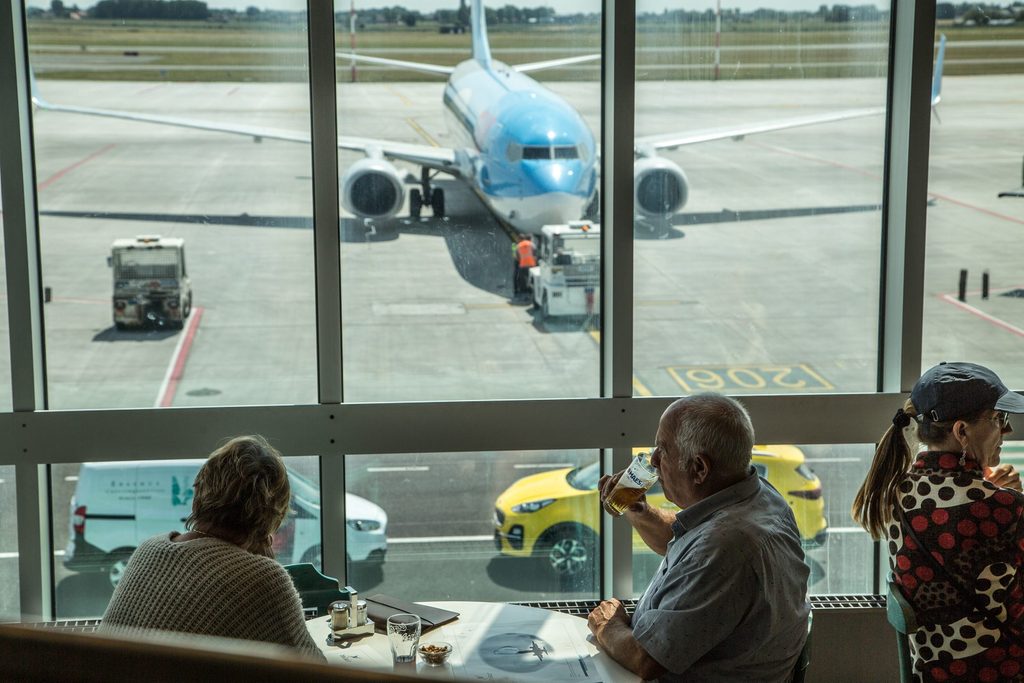The aeroplane boarding tax paid by all people flying from a Belgian airport raised €40 million last year, meeting its target. Intra-EU journeys of more than 500 kilometres brought in the most revenue.
To discourage people from taking short flights and instead encourage more ecological alternatives when heading to nearby destinations such as Paris, London or Amsterdam, the Federal Government introduced the so-called "aeroplane boarding tax" in 2022. This ranges from €2 to €10, depending on the destination.
As the measure aims to discourage short-haul flights, the highest tax of €10 is paid for travel to destinations under 500 km away, as the crow flies. For journeys over 500 kilometres to destinations in the European Union (EU), the United Kingdom or Switzerland, the tax is €2. It is €4 for journeys of more than 500 kilometres outside the EU. In the first year, it fell short of expectations, generating just €20.5 million instead of the expected €30 million.
However, last year's target of €40 million was reached: €40.4 million was raised by the tax, Le Soir reported. Of this, more than half (€20.6 million) came from journeys of more than 500 kilometres within Europe while €16.4 million was brought in from journeys of more than 500 kilometres outside Europe.
The income from the highest tax of €10 on short flights of less than 500 kilometres brought in the least revenue – just €3.4 million. One in nine commercial passenger flights (scheduled and private) leaving Belgium last year flew to an airport less than 500 kilometres away: an average of 36 flights a day.
Not really an environmental measure
The measure continues to face criticism. Before it was introduced, key players in the aviation industry pushed back. The Belgian aviation umbrella organisation BATA argued that such measures should be taken on a wider scale to have a real impact.
BATA was also critical that taxes do not compensate a significant part of CO2 emissions in the same way that the European ETS (Emission Trading System) and the CORSIA (Carbon Offset and Reduction Scheme for International Aviation) at the global level do. Both BATA and Brussels Airlines argued that the government should work on making the aviation sector more ecologically friendly by investing in sustainable aviation fuel (SAF) and by better connecting Belgian airports to the high-speed train network.
More than two years after it was introduced, Canopéa, the Federation of Belgian Environmental Associations, has also stated the measure is insufficient, and that Belgium should tax the aviation sector in line with its emissions.
Related News
- Risk of dying in aeroplane crash has never been so low, study shows
- 'Best summer ever': Flying in Europe returns to pre-pandemic levels for first time
"To turn this into a genuine environmental measure, we would have to increase the tax, target short-haul flights more strongly and apply higher taxes on first-class tickets, which have a lower occupancy rate and therefore higher emissions per passenger," said Canopéa's Pierre Courbe.
Meanwhile, rail alternatives remain limited. Greenpeace research published earlier this year showed that from Brussels, there are 136% more direct flights than direct trains to destinations that can be reached by train within 18 hours. Direct trains link to just 11 of Europe's major cities, whereas direct flights are available to 41 of them.

